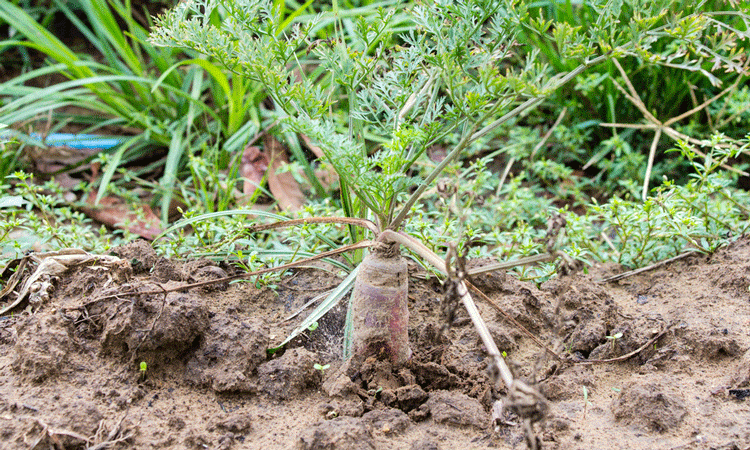Crops obtained by mutagenesis are GMOs, court rules
- Like
- Digg
- Del
- Tumblr
- VKontakte
- Buffer
- Love This
- Odnoklassniki
- Meneame
- Blogger
- Amazon
- Yahoo Mail
- Gmail
- AOL
- Newsvine
- HackerNews
- Evernote
- MySpace
- Mail.ru
- Viadeo
- Line
- Comments
- Yummly
- SMS
- Viber
- Telegram
- Subscribe
- Skype
- Facebook Messenger
- Kakao
- LiveJournal
- Yammer
- Edgar
- Fintel
- Mix
- Instapaper
- Copy Link
Posted: 27 July 2018 | Iqra Farooq (New Food) | No comments yet
Mutagenesis is the process by which the genetic information of an organism is changed, without the insertion of foreign DNA.


The European Court of Justice (ECJ) ruled that crops obtained by mutagenesis are genetically modified organisms (GMOs) and are subject to the obligations set down by the GMO directive.
Mutagenesis is the process by which the genetic information of an organism is changed, without the insertion of foreign DNA, and results in a mutation.
After ruling that crops attained through mutagenesis are GMOs, the ECJ said the GMO Directive should not apply to organisms obtained by means of certain mutagenesis techniques, specifically those which have a long safety record and have been used in various applications.
A French agricultural union, Confédération Paysanne, defending the interests of small-scale farming, along with eight other associations, bought forward the action to contest the French legislation which exempts organisms obtained by mutagenesis from the GMO Directive.
In a statement posted on its website, the Confédération Paysanne said: “The judgement […] is a victory not only for the nine applicant organisations behind a lengthy procedure initiated over four years ago. years, but especially for all peasants, consumers and European citizens. Our freedom to refuse to cultivate or consume GMOs and our right to live in a healthy environment are supported by this decision.”
Their argument was that mutagenesis techniques have evolved over time, with progress leading to the emergence of in vitro mutagenesis techniques, making it possible to target mutations so they create herbicide resistant organisms.
As such these associations argued that there are health risks to humans and animals, and risk of significant harm to the environment, in the same way as GMOs obtained by transgenesis.
However, the ruling has received criticism from some in the scientific community. In a statement posted on the Science Media Centre, Prof Cathie Martin, Group Leader, John Innes Centre, said: “It is important to point out the wider implications of this ruling (wider than simply its impact on traits engineered using new breeding technologies).
“The important point is that this ruling ignores assessment of the safety of the trait developed, and rules only on the technology used. So introduction of higher yielding crops engineered by mutagenesis (traditional or by NBT) could be blocked by NGOs in the absence of an approved environmental impact evaluation.
“This is going to impact plant breeding in Europe hugely and negatively.”
The ECJ concluded member states are free to subject organisms produced by all mutagenesis techniques as GMOs, and as such they would also come under the GMO Directive.









